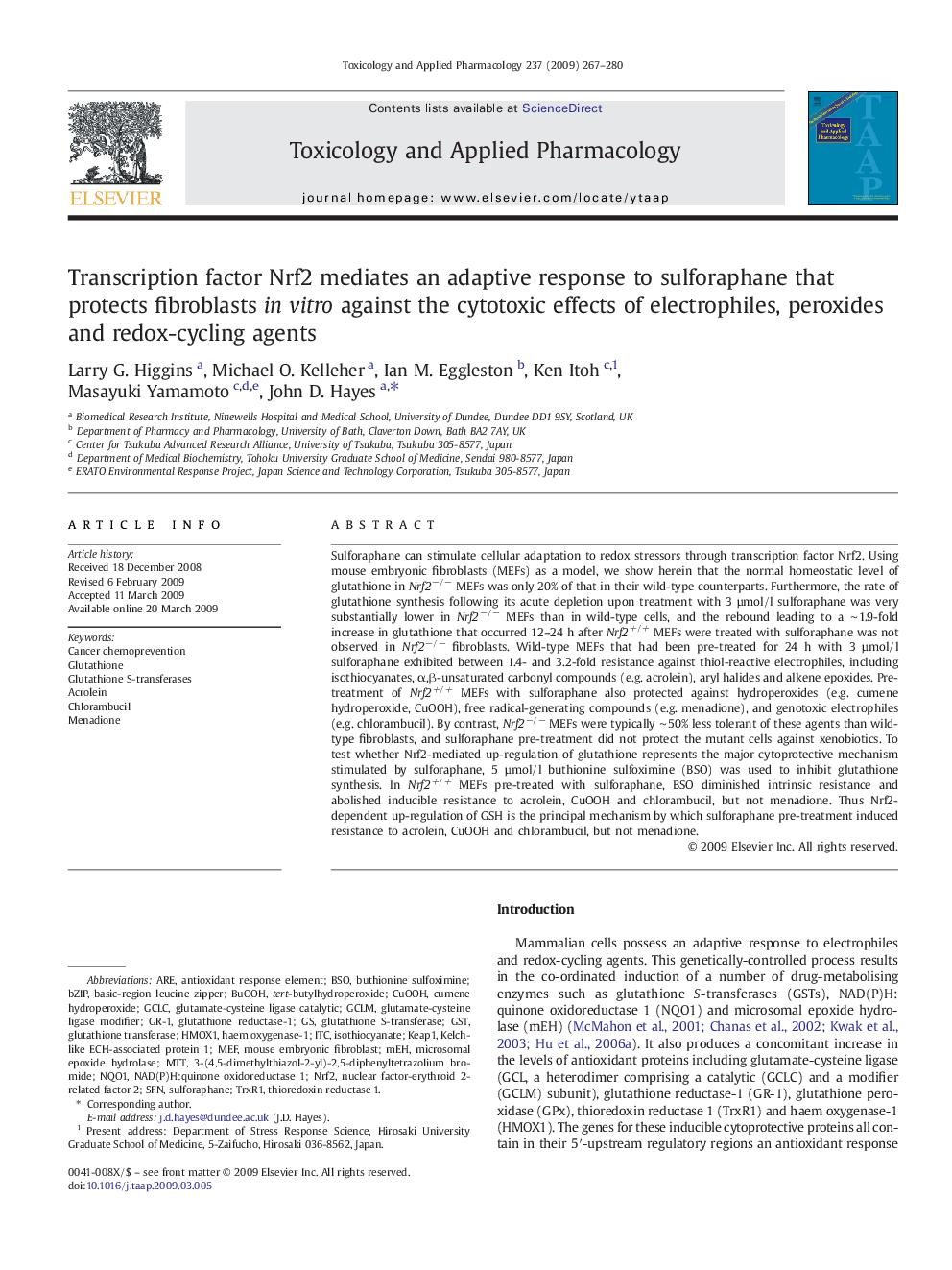| Article ID | Journal | Published Year | Pages | File Type |
|---|---|---|---|---|
| 2570586 | Toxicology and Applied Pharmacology | 2009 | 14 Pages |
Sulforaphane can stimulate cellular adaptation to redox stressors through transcription factor Nrf2. Using mouse embryonic fibroblasts (MEFs) as a model, we show herein that the normal homeostatic level of glutathione in Nrf2−/− MEFs was only 20% of that in their wild-type counterparts. Furthermore, the rate of glutathione synthesis following its acute depletion upon treatment with 3 µmol/l sulforaphane was very substantially lower in Nrf2−/− MEFs than in wild-type cells, and the rebound leading to a ∼ 1.9-fold increase in glutathione that occurred 12–24 h after Nrf2+/+ MEFs were treated with sulforaphane was not observed in Nrf2−/− fibroblasts. Wild-type MEFs that had been pre-treated for 24 h with 3 µmol/l sulforaphane exhibited between 1.4- and 3.2-fold resistance against thiol-reactive electrophiles, including isothiocyanates, α,β-unsaturated carbonyl compounds (e.g. acrolein), aryl halides and alkene epoxides. Pre-treatment of Nrf2+/+ MEFs with sulforaphane also protected against hydroperoxides (e.g. cumene hydroperoxide, CuOOH), free radical-generating compounds (e.g. menadione), and genotoxic electrophiles (e.g. chlorambucil). By contrast, Nrf2−/− MEFs were typically ∼ 50% less tolerant of these agents than wild-type fibroblasts, and sulforaphane pre-treatment did not protect the mutant cells against xenobiotics. To test whether Nrf2-mediated up-regulation of glutathione represents the major cytoprotective mechanism stimulated by sulforaphane, 5 µmol/l buthionine sulfoximine (BSO) was used to inhibit glutathione synthesis. In Nrf2+/+ MEFs pre-treated with sulforaphane, BSO diminished intrinsic resistance and abolished inducible resistance to acrolein, CuOOH and chlorambucil, but not menadione. Thus Nrf2-dependent up-regulation of GSH is the principal mechanism by which sulforaphane pre-treatment induced resistance to acrolein, CuOOH and chlorambucil, but not menadione.
